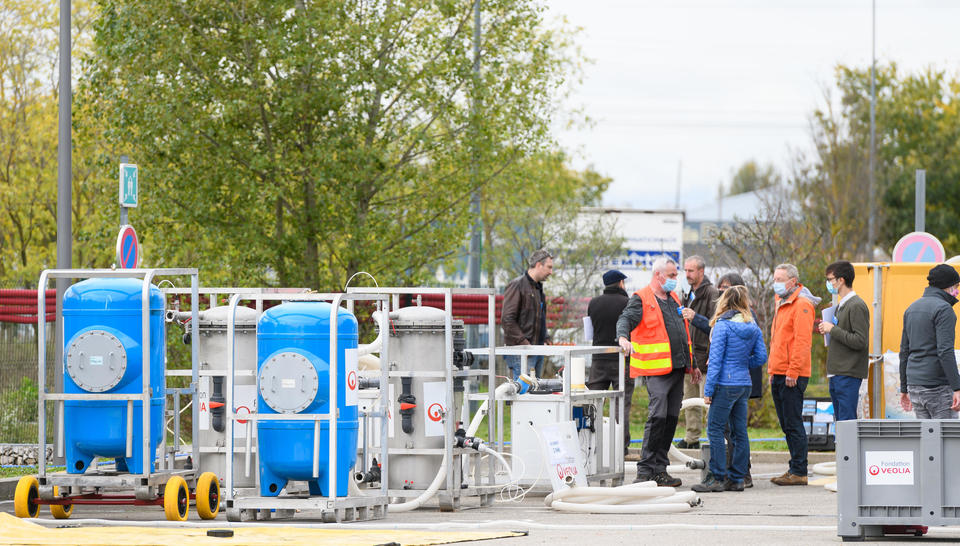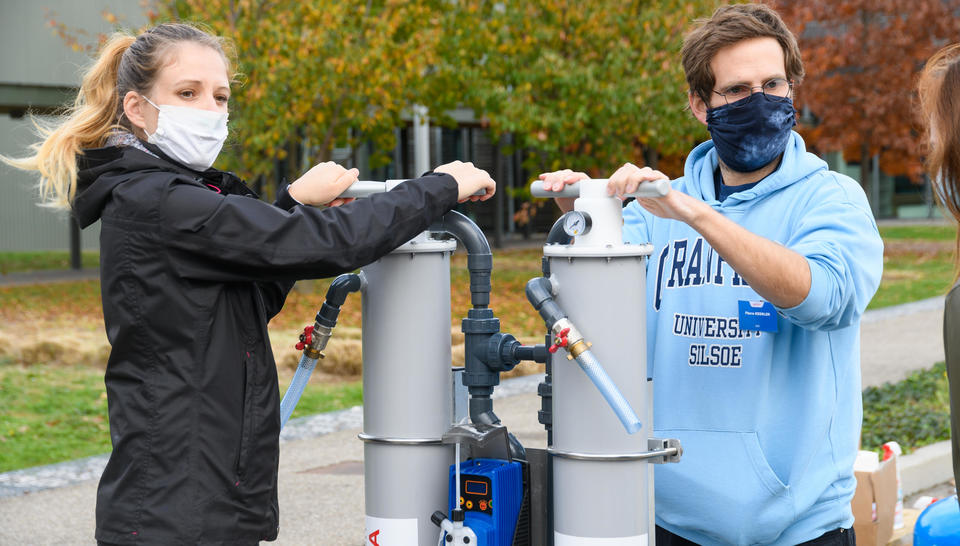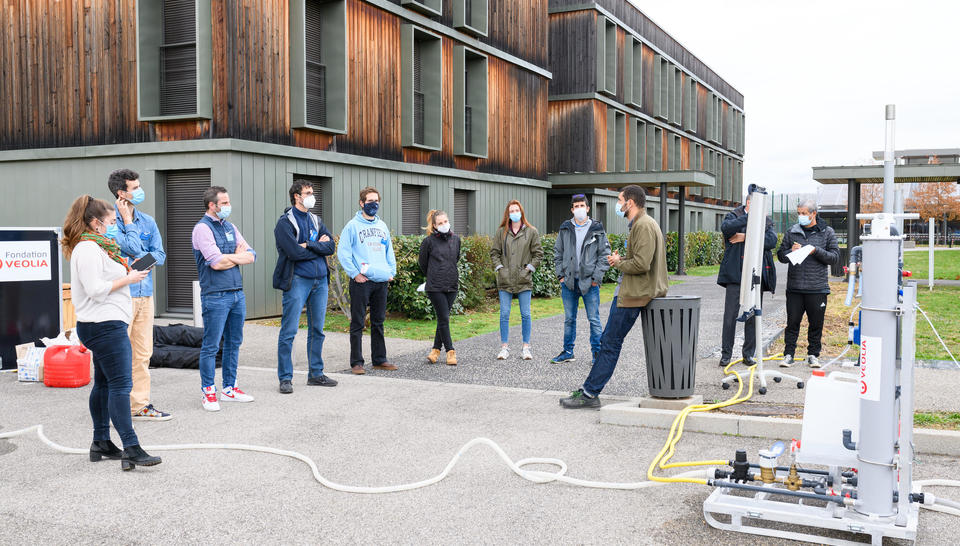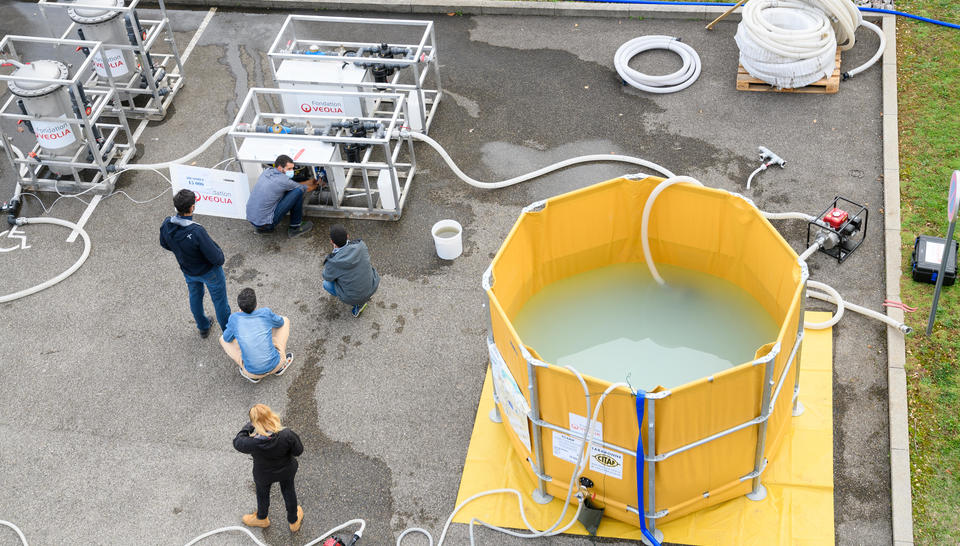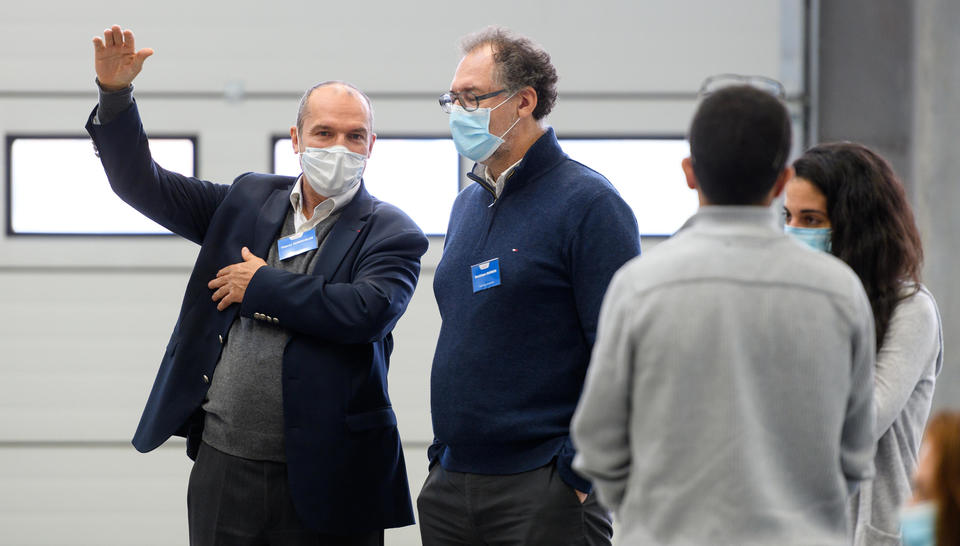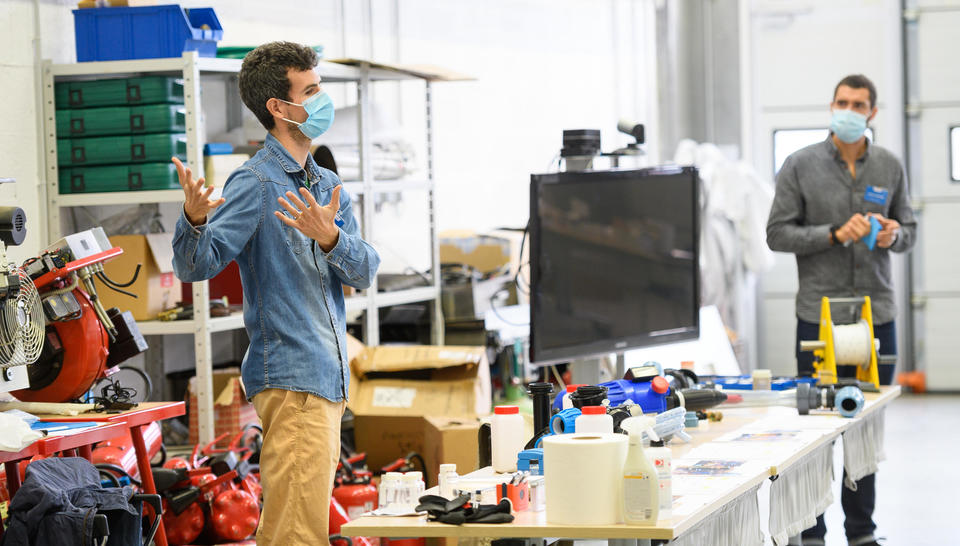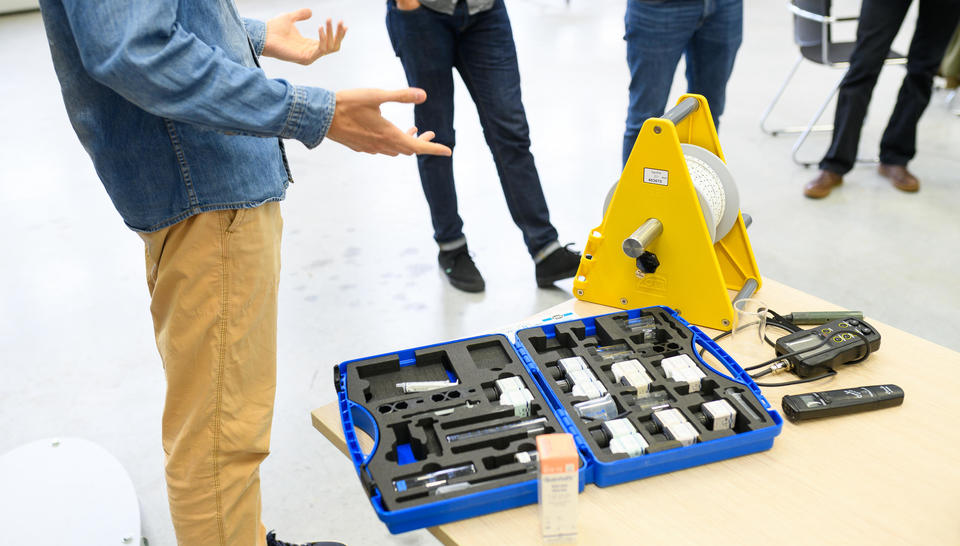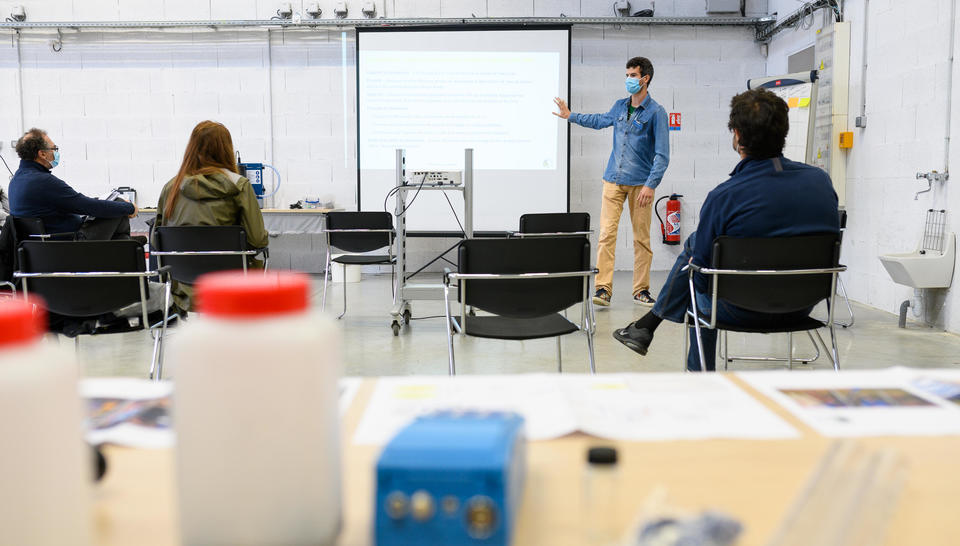At the end of October, at the invitation of French Water Partnership and the Veolia Foundation, experts took part in two days of discussions about access to water and sanitation in the context of humanitarian emergencies: the Humanitarian WASH Workshops.
In Jonage, near Lyon, some thirty experts from NGOs, UN agencies and private groups met at the end of October for two days dedicated to access to water and sanitation. These "WASH" specialists (standing for "WAter, Sanitation and Hygiene", in French: "Eau, Assainissement et Hygiène") discussed their experiences on the ground and current technical innovations.
Among these was a solution for desalinating brackish water to ensure access to drinking water in an environment where sources of fresh water are lacking. This mobile desalination unit will complete the range of Aquaforce units dedicated to water purification in emergency situations. These units have been deployed in humanitarian settings for the last ten years, but until now have had to be installed near a river, well or borehole (i.e. a source of fresh water).
In the field of sanitation, a prototype was presented with the aim of providing a mobile solution that can be deployed in humanitarian contexts. The solution, currently under development, is based on a twofold process of faecal sludge hygienization and anaerobic digestion[1].
Technical presentations were followed by feedback from on-the-ground experiences. Participants from Médecins Sans Frontières, Solidarités International, the International Federation of Red Cross Societies and UNICEF explained several of their operations, notably in Haiti, Myanmar and Bangladesh.
Humanitarian actors are questioning, innovating, and looking ahead... There is the ambition, as well as a dynamic that has been set in motion, to repeat this type of meeting.
---
[1] - Anaerobic digestion (also called "biomethanization")is the natural biological process of breaking down organic matter in the absence of oxygen.



